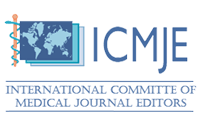Effect of extraction solvent on the recovery of bioactive substances of dry salted olives
Ouahiba, Soufi., Salima, Zemouri., Hayette, Louaileche*
Affiliation
Laboratoire de Biochimie Appliquée, Faculté des Sciences de la Nature et de la Vie, Université de Bejaia,Bejaia, Algérie
Corresponding Author
Hayette, Louaileche. Laboratoire de Biochimie Appliquée, Faculté des Sciences de la Nature et de la Vie, Université de Bejaia, 06000 Bejaia, Algérie, Tel: +213-34 21 47 62; E-mail: haylouaileche@yahoo.fr
Citation
Hayette, Louaileche.. et al. Effect of Extraction Solvent on the Recovery of Bioactive Substances of Dry Salted Olives. (2016) J Anal Bioanal Sep Tech 1(1): 12-16.
Copy rights
© 2016 Louaileche, H. This is an Open access article distributed under the terms of Creative Commons Attribution 4.0 International License.
Keywords
Abstract
Extraction of phenolic compounds from olive processed with dry salt was studied. Extraction experiments were carried out by investigating the effect of solvent (acetone, ethanol and methanol) and it concentration (50 - 90%) on the recovery of bioactive substances (phenolic compounds and flavonoids) and the antioxidant activity (reducing power and radical scavenging activity against stable DPPH radical) of the extracts. The results showed that the nature and the concentration of solvent affect significantly (p < 0.05) the phenolic content and antioxidant activities of olive extracts. The highest content of total phenolics (2.75 g/100 g) was recorded with 50% acetone, while the highest flavonoid contents were obtained in both 50% and 70% ethanol (1.07 g/100 g). Furthermore, the extracts of 50% acetone exhibit the best antioxidant activity. However, the strongest antiradical activity was achieved with 50% ethanol (776 mg/100 g). On the other hand, the antioxidant activity was found to be positively correlated with bioactive substances.












